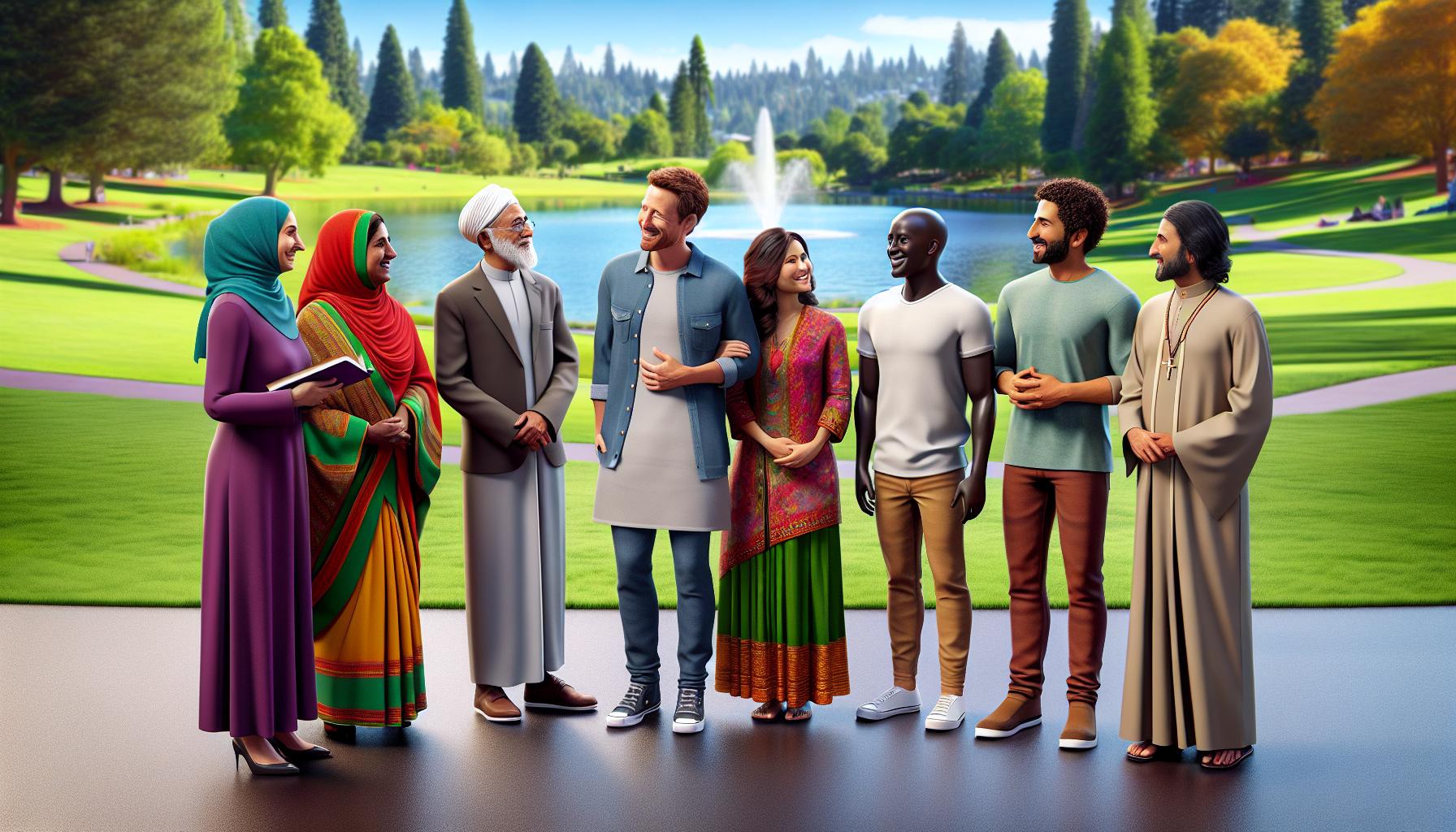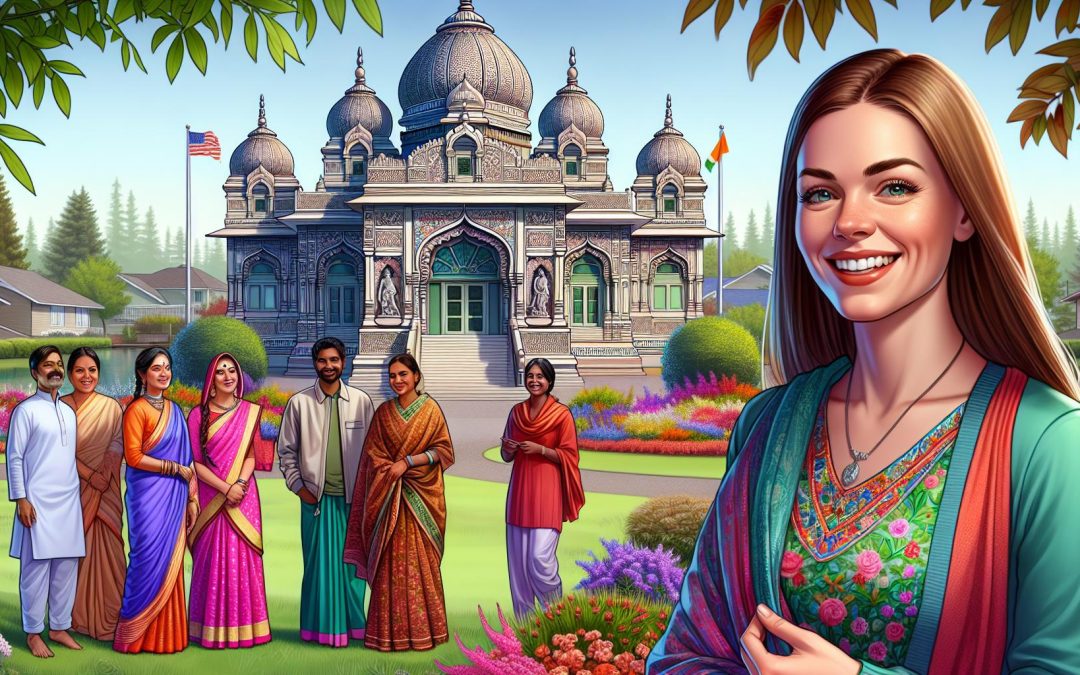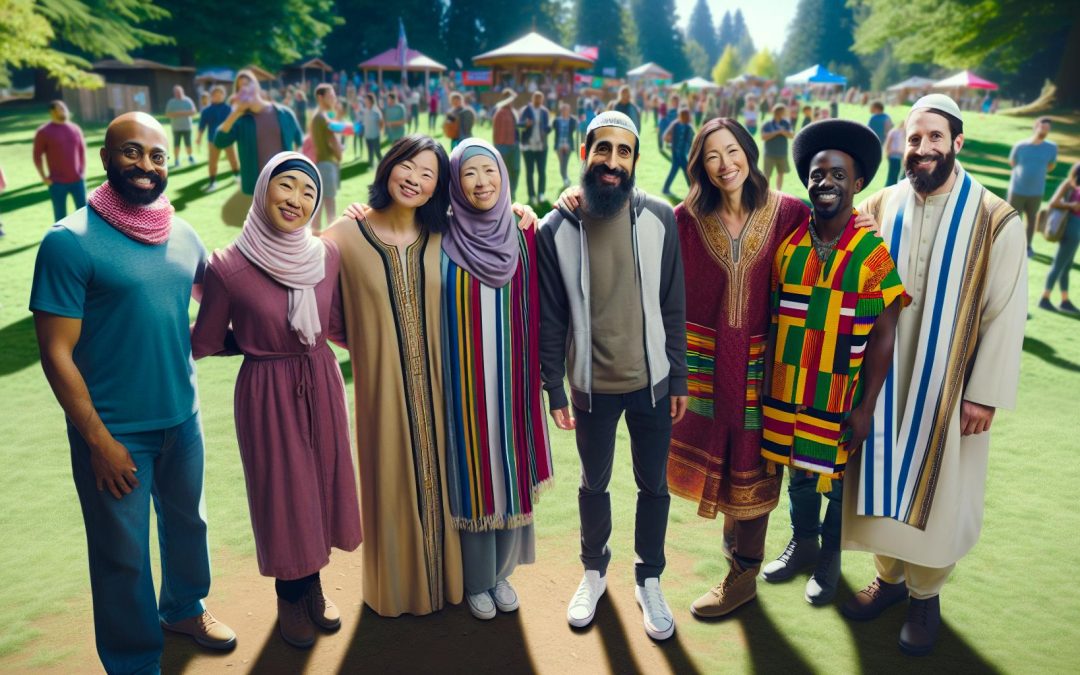Redmond, a city known for its tech-savvy environment and vibrant community life, presents a unique landscape for religious communities. As I stroll through its diverse neighborhoods, I notice how different faiths coexist, each adding its own color to the cultural tapestry. Yet, with this diversity comes a set of challenges that religious communities must navigate to thrive.
Balancing tradition with modernity is no small feat. Many faith groups face the task of staying relevant in a fast-paced, ever-evolving city. However, this challenge also opens doors to opportunities for interfaith dialogue and collaboration. By embracing change and fostering connections, religious communities can not only preserve their heritage but also enrich the broader community.
In Redmond, the potential for growth and understanding is immense. By addressing these challenges head-on, religious communities can play a pivotal role in shaping a more inclusive and harmonious society.
Understanding the Religious Landscape in Redmond
Redmond’s religious landscape is a vibrant mosaic of faiths, each contributing to the area’s cultural richness. As a city in the heart of Washington State, it’s known for its technology-driven culture, which often coexists with a wide range of spiritual traditions. This diverse religious makeup includes Christianity, Islam, Hinduism, Buddhism, Judaism, and other spiritual paths.
Christian communities play a significant role, with various denominations represented, like Catholic, Protestant, and Orthodox churches. Each offers unique traditions and practices, from Sunday services to community outreach programs. I’ve noticed how these churches actively engage with local issues, bridging the gap between tech innovation and social support.
Muslim residents in Redmond have established mosques and Islamic centers, providing a space for worship and community gatherings. Their presence highlights the importance of cultural dialogue, fostering mutual understanding among different faiths. I find these centers often host events open to all, promoting a sense of unity and shared values.
Hindu temples in the city reflect a growing Hindu community, celebrating festivals like Diwali and Holi. These events serve as invaluable learning opportunities for those unfamiliar with the culture, fostering a spirit of inclusivity. Special prayers, cultural performances, and sharing of traditional foods often accompany these celebrations, offering a glimpse into the rich tapestry of Hindu customs.
Buddhist temples and meditation centers offer a tranquil space for reflection and spirituality, attracting both Buddhists and non-Buddhists interested in mindfulness practices. Meditation sessions, dharma talks, and retreats often form the core of activities, providing solace in a fast-paced environment. My experiences with these practices highlight their emphasis on inner peace and compassionate living.
Jewish synagogues contribute to the religious diversity, offering worship services, Torah study sessions, and holiday celebrations. These institutions serve as cultural and educational centers, where people deepen their understanding of Jewish traditions. Community activities often include interfaith dialogues, bridging gaps between different religious groups.
Smaller faith communities, such as Bahá’í, Sikh, and spiritual but not religious groups, further enrich Redmond’s religious tapestry. They create opportunities for interfaith collaboration, despite their smaller numbers. These groups foster a welcoming environment, emphasizing unity and compassion in community building.
Redmond’s religious landscape presents both challenges and opportunities. Balancing tradition with modernity, religious communities can become central to promoting inclusivity and understanding. Encouraging interfaith collaboration, these communities strengthen social bonds and contribute to Redmond’s harmonious coexistence.
Major Challenges Facing Religious Communities
Religious communities in Redmond navigate a dynamic environment influenced by social, economic, and cultural shifts. These challenges shape both their internal structures and external interactions.
Demographic Changes
Shifting demographics in Redmond present challenges for religious communities. An influx of young professionals, many affiliated with the tech industry, changes traditional congregation dynamics. Older congregations often wonder how to attract younger members who may not attend traditional services. Cultural diversification also brings new beliefs while putting pressure on established practices to evolve. For example, Christian groups adapt to incorporate newcomers’ backgrounds, balancing tradition with innovation. Communities must address these changes to remain relevant and inclusive.
Societal Perceptions and Misconceptions
In Redmond, religious communities frequently encounter societal stereotypes that affect their public image. Misunderstandings about faith practices can lead to alienation. For instance, Muslim centers might face biases rooted in broader global politics affecting local interactions. Similarly, lesser-known groups like Bahá’í or Sikh may struggle to clarify their beliefs and practices, despite their significance. Education and awareness initiatives play critical roles in bridging these gaps, fostering respect, and correcting misconceptions.
Financial Constraints
Financial sustainability poses a significant challenge for many religious groups. Securing funds to maintain spaces and organize events becomes harder as donations fluctuate alongside economic trends. Smaller communities, like Buddhist temples or Jewish synagogues, often face financial pressure to sustain outreach and educational programs. To adapt, many turn to creative fundraising such as online platforms and community collaborations, ensuring they can continue their mission in an ever-changing financial landscape.
Opportunities for Growth and Collaboration
Redmond’s religious communities see unique opportunities for growth by leveraging their diverse traditions and shared values.
Community Engagement Initiatives
Local religious groups in Redmond initiate several community engagement projects. Churches host events like food drives and free health clinics, helping those in need while fostering communal ties. Meanwhile, mosques organize cultural fairs that invite the broader public to learn about Islamic traditions, encouraging cultural appreciation. Hindu temples offer classes in yoga and meditation, providing wellness resources that attract both the faithful and those interested in mindfulness.
Jewish synagogues promote education through workshops and lectures on historical and cultural themes, often open to non-members. These initiatives foster wider community involvement and bridge the gap between different faiths. By engaging in volunteer work in local schools or charities, religious communities expand their reach and impact throughout Redmond. This collective service-oriented approach benefits communities and strengthens inter-community bonds by highlighting shared responsibilities and goals.
Interfaith Dialogue and Partnerships
Interfaith dialogue remains a cornerstone in fostering understanding and collaboration among Redmond’s diverse religious groups. Joint events, like interfaith panels and discussion forums, provide platforms for members of different faiths to share beliefs and customs, dismantling misconceptions.
Partnerships among religious communities often extend to combined advocacy efforts on social issues like homelessness and climate change. For instance, Sikh and Bahá’í groups participate alongside Christian and Muslim organizations in city-wide initiatives to address social concerns, exemplifying the power of unity.
Organizations such as the Interfaith Network of Redmond play a pivotal role by organizing regular meetings and collaborative events. These partnerships create a supportive environment that encourages sharing resources and ideas, reinforcing the collective mission to build an inclusive community. By continuing to nurture these relationships, religious communities can contribute to a vibrant and cohesive cultural landscape in Redmond.
Role of Technology in Religious Communities
Technology significantly impacts religious communities in Redmond, reflecting the city’s tech-savvy environment.
Virtual Worship and Online Presence
Many religious groups in Redmond embrace virtual platforms, offering services that cater to members unable to attend in-person gatherings. Churches, mosques, and temples, for example, stream events on platforms like YouTube and Facebook. This digital shift enhances accessibility for elderly members or those with mobility issues.
Social media pages and apps provide updates, share sermon snippets, and foster interactions among community members. Congregants engage with leaders and each other digitally, reinforcing a sense of belonging. Innovative tools, such as virtual reality, create immersive worship experiences, bridging physical divides.
However, balancing online and offline engagement challenges many faith leaders. They seek to maintain traditional practices while meeting the digital expectations of younger members. Investing in technology infrastructure and training becomes crucial for a successful transition.
In Redmond, digital tools prove vital in preserving religious traditions amid modern challenges. The widespread use of technology within these communities highlights an adaptive approach, embracing innovation while nurturing faith-based connections.
Success Stories and Case Studies
In Redmond, religious communities don’t just face challenges; they also have remarkable success stories that highlight their resilience and innovation. Over the years, several faith-based groups have emerged as leaders in community building and cross-cultural understanding.
St. Mark’s Community Outreach
St. Mark’s, a local Christian congregation, developed a successful program called Community Connect. This initiative links recent immigrants with long-term residents, fostering mutual support through language classes and cultural exchange programs. Through Community Connect, over 200 families have built lasting relationships, enhancing the multicultural tapestry of Redmond.
Masjid Al-Noor’s Youth Empowerment Initiative
The Masjid Al-Noor Islamic center launched a Youth Empowerment Initiative focusing on leadership and community service. They’ve organized workshops and volunteer opportunities for young members, resulting in over 1,000 hours of community service. The initiative not only empowers youth but also strengthens ties with other local organizations, reflecting the center’s commitment to positive social impact.
Redmond Hindu Temple’s Festival of Lights
The Redmond Hindu Temple hosts an annual Festival of Lights, Diwali, celebrating with thousands of attendees from various faiths. This public event includes traditional performances, workshops, and educational displays. Diwali promotes cultural sharing and understanding, which has garnered praise from city officials and community leaders for fostering inclusivity.
Buddhist Temple’s Mindfulness Program
A local Buddhist temple, known for its tranquil settings, introduced a Mindfulness Program open to the public. With guided meditation sessions and wellness workshops, the program attracted over 500 participants in its first year. Attendees reported reduced stress and a deeper sense of community, demonstrating the program’s success in promoting mental well-being.
Interfaith Network of Redmond’s Collaborative Efforts
The Interfaith Network of Redmond exemplifies collaboration, organizing numerous joint events that address pressing social issues. Their annual interfaith summit hosts panels and discussions on topics like sustainability and social justice, uniting various religious leaders and followers. This platform has led to actionable solutions, from eco-friendly initiatives to advocacy for human rights, showcasing their pivotal role in driving societal change.
These success stories highlight not just achievements but also the rich potential for growth and collaboration in Redmond. Each initiative, rooted in faith and compassion, serves as a model for others striving to make a difference. These case studies underscore the idea that, despite obstacles, religious communities in Redmond are thriving hubs of innovation and understanding.
Conclusion
Reflecting on the vibrant religious tapestry of Redmond I’m heartened by the resilience and innovation these communities display. Despite challenges like financial constraints and the balancing act between tradition and modernity the spirit of collaboration and inclusivity shines through.
It’s inspiring to see how technology is embraced not as a threat but as a tool for greater connection and accessibility. The success stories of community initiatives and interfaith dialogues are testament to the power of unity and shared purpose.
As these communities continue to navigate their paths they remind us that diversity is not just a characteristic of Redmond but a strength that fosters mutual understanding and enriches all our lives.





0 Comments